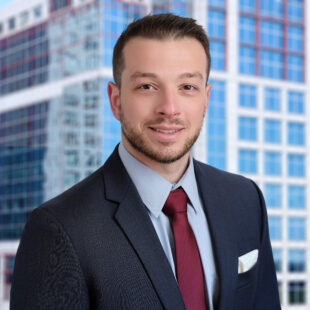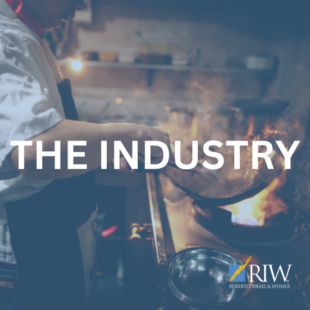In response to the recent passage of the Liquor License Expansion Bill, the City of Boston quickly established new application procedures in recent weeks and conducted outreach through a series of presentations by Mayor Michelle Wu, the Boston Licensing Board, the Office of Economic Opportunity, and the Boston City Council. While much of the local application process will remain the same, several new components have been incorporated for this latest batch of licenses to support a transparent and equitable approval process. Below is a list of the changes and what applicants need to know.
- No More “First Come, First Serve” Approvals
Contrary to prior practice, licenses issued under the new bill will no longer be voted on a weekly, rolling basis. While applicants will continue to appear before the Licensing Board in the order in which their application is submitted, the Board will defer its vote until a “batch” of new license applications has been heard. Currently, there is no limit on the number of applications that can be included within a batch, so long as the application is submitted and heard within certain deadlines (more on that below). Any application presented to the Board before each designated “batch” deadline will be considered in the applicable batch vote.
- Licenses Will Be Awarded on Criteria Emphasizing Diversity, Equity, and “Public Need.”
From the early days of this legislative proposal, an emphasis was placed on promoting licensure in communities and populations with less resources and historically less participation in Boston’s restaurant industry. Advocates for minority businesses have applauded the efforts by the state legislature in passing the bill, and the Licensing Board has stated its intention to implement criteria that focuses on diversity and equity and ensure the decision process is transparent for all applicants.
Another factor reiterated during community outreach was the intent to grant licenses to applications that will serve the greatest “Public Need.” Public Need is a licensing-specific term that emphasizes licensure “with a view only to serve the public need and in such a manner as to protect the common good” and, in the opinion of the local licensing authority, the establishment of “an adequate number of places at which the public may obtain, in the manner and for the kind of use indicated, the different sorts of beverages for the sale of which provision is made.” (G.L. Ch. 138 § 23). At the same time, certain elements of Public Need are inherent in the restriction of licenses to specific zip codes. Boston is attempting to correct an inequity in licenses that exist in a certain number of neighborhoods. This will create more dining options and revitalization efforts in underserved neighborhoods; new applicants will also need to demonstrate individualized Public Need factors specific to their neighborhood. Such factors would include the number of existing licenses in the proposed area, diversity of concept and offerings, neighborhood impacts, community support, and the applicant’s overall reputation, among others. Each application for a new license requires a showing of Public Need, which will be considered at the time of the vote. Any applicant seeking to acquire a new license should strongly consider the factors of Public Need which would support its proposal.
- The First “Batch” Deadline is December 6th.
The Licensing Board received dozens of applications for new licenses in the weeks since Bill H.3741 was passed. Moving forward, it is expected that the Board will defer its vote on any new license applications until after the first batch deadline on December 6th. The exact procedure is still in progress, but it is anticipated the first batch vote will take place in January 2025. The Board will not restrict the number of applications that can be submitted prior to this deadline, but are limited to the issuance of five Restricted Licenses annually for each of the 13 zip codes. A new batch is expected to be announced for consideration in Spring 2025.
- Applications Will “Roll Over”.
If you are considering applying for the first batch of applications to be heard by December 6th but are worried that your application will be overlooked, fear not. The Board has declared that applications will remain valid for one year from their hearing date. For example, if an application is not approved during the first batch vote for which it is eligible, the application will automatically be considered for the next available vote without re-submission or re-hearing. The Board has not yet established how often such “batch” votes will occur, but given current timelines, it will likely be every four to six months, which means that applications could remain eligible for at least two batch votes.
- Simultaneous Application for Restricted and Unrestricted Licenses.
Applicants do not have to weigh whether to apply for an untransferable Restricted License or an Unrestricted “Value” License. The Board announced that it would accept a single application that would simultaneously apply for a Restricted and Unrestricted License. Unrestricted Licenses will also be considered at each “batch” vote, so the timing of applications will not differ, simplifying the process for those who wish to apply for both licenses. New Unrestricted Licenses will also come at no cost to the awarded party, beyond the customary annual licensing fees associated with all licenses. The Board stated that the criteria for such Unrestricted Licenses would similarly focus on creating diversity and equity among business owners and serving the Public Need.
- Additional Public Resources for the General Public.
The City of Boston reiterated its commitment to provide resources to potential license applicants, which will include the creation of a program involving scheduled workshops, question and answer sessions, multi-lingual programs, and even door-to-door outreach to assist applicants who lack knowledge of the application process and lack resources to employ those with such knowledge. The City’s efforts will primarily focus on helping applicants who reside in the qualified zip code areas but emphasize that this should not discourage anyone interested in applying to seek assistance for the application process, regardless of where they reside.
For more information, the Massachusetts Restaurant Association, the Massachusetts Alcoholic Beverages Control Commission, and the Licensing Board for the City of Boston are hosting a webinar later this month which will provide an overview of the liquor license application process from beginning to end. Regulators will also talk about common application pitfalls to avoid, and applicants will be able to ask their questions about the process. You can register for the webinar here.
Michael Cronin is an associate in RIW’s Corporate Department and represents commercial clients in the purchase and sale of commercial properties, leasing, financing, as well as licensing and zoning projects. His practice includes advocacy before zoning and planning boards and representing clients in negotiations for acquisitions, sales, and leases of commercial properties. Michael can be reached at mpc@riw.com.





